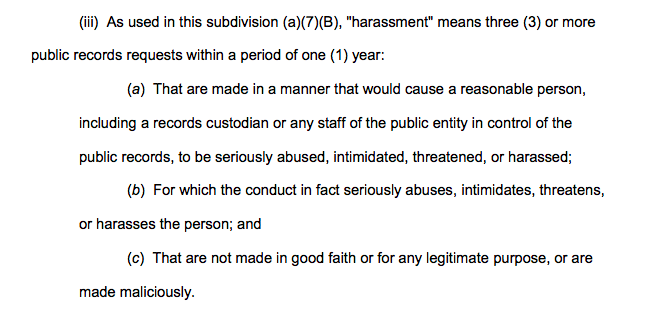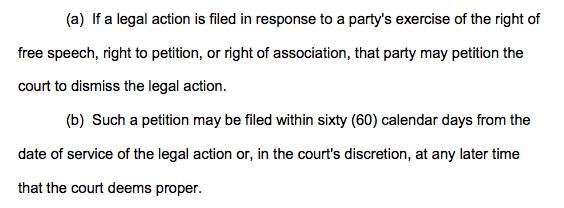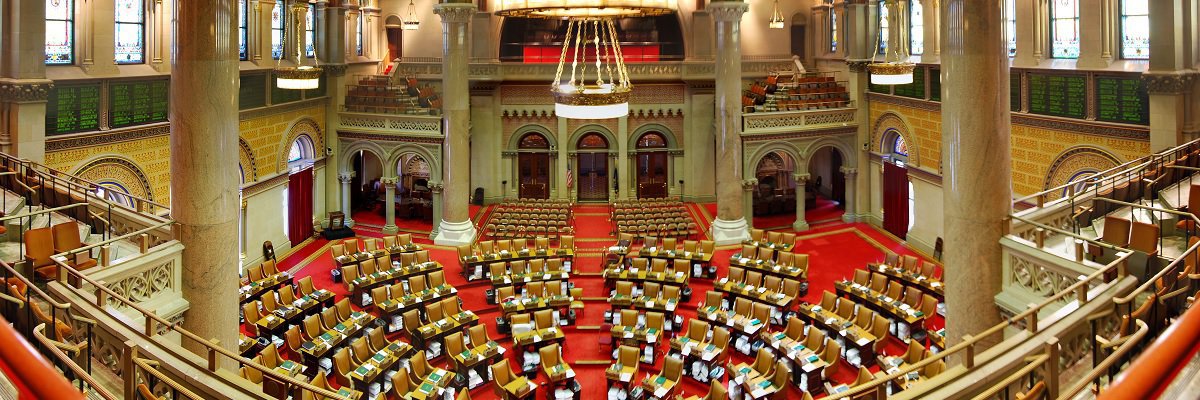Public records law is making headlines this week with new legislation on the horizon. States across the nation are looking to revise, change, and add new directives that will affect records requesters in their state and across the nation.
We’ve compiled a list of transparency bills across the nation to give you a closer look on proposed legislation for this year’s sessions and its effect on open records law.
Kentucky
State Senator Danny Carroll (R-Paducah) plans to reintroduce a revised bill after battling fierce backlash last month for its harsh revisions on the state’s Open Records Act. The new bill has not been released yet and according to his office, new legislation is still in the works and it is unclear when it’ll be ready. An original version of the bill can be found here. According to previous reports, Carroll said the original language for the bill came directly from a Secret Service agent who had reached out to him independently.
Missouri
New legislation passed in Missouri House this month closing records “received or prepared by by or on behalf of a member of a public governmental body.” Bill 445 also seeks to apply the provisions set under voter-approved Amendment 1, which subjects legislatures to the public records act, to everyone.

New York
State Governor Andrew Cuomo has proposed a revision to FOIL as a part of his 2019-2020 budget address. His FOIL proposal aims to have equal access of records “from the women and men elected to represent and serve their interests in government.” Within his reform, the Governor aims to restrict the release of mug shots and arrest records as a way to limit company’s from selling this information to other people. The widely supported bill is hailed as a “social justice proposal” that would help “curtail a nefarious practice that is tantamount to extortion of formerly incarcerated individuals, as well as innocent people.”
“The digital age and proliferation of mugshot websites have created an internet shaming industry, and it has lasting effects on the individuals portrayed, including those whose arrests do not result in conviction. An idle internet search can yield booking photos that indefinitely damage an individual’s employment and personal prospects,” said Jason Conwall, spokesman for Governor Cuomo.
Although a restriction, access to records and photos will still continue as a case-by-case basis determined by local law enforcement agencies depending on the need to release photos or not. However, the Governor’s office plans to discuss the proposal with the Legislature in the upcoming months.
North Dakota
With a mid-session break nearing in North Dakota, legislatures are looking to close up committee work and consider remaining legislation. On the agenda are two bills limiting access to information and further closing records that were once deemed public.
Senate Bill 2221 looks to extend an exemption to records communications to include lawmaker’s communications with public employees.

Additionally, Senate Bill 2209 would exempt the release of records dealing with security operations of “critical infrastructure.” The bill follows nationwide coverage of the Dakota Access pipeline protests.

Oregon
Oregon’s controversial bill requiring requesters to disclose their intended use for records being requested will not be moving forward. Senate Bill 609, sponsored by Senator Betsy Johnson (D-Scappoose) at the request of former Representative Deborah Boone, faced widespread backlash by transparency advocates and was highly-contended.
In a previous email to MuckRock, Boone had noted the importance of the bill as something “reasonable” for the requester to do.
“Some of the information requested is personal in nature and is really none of anyone’s business. Oregon’s present law exempts several things but leaves the reason for request out. I think it is reasonable for the requester to disclose their intentions,” wrote Boone.
In addition, the Office of the Oregon Public Records Advocate hosts a full-list of 2019 public records-related bills including legislation to prohibit state use of privately hosted electronic mail to conduct public business.
Tennessee
There’s a lot going on in the Volunteer State, so let’s break this down:
One of the most controversial bills on the 2019 agenda looks at banning requests and requesters seen as “harassing” by an agency. Senate Bill 590 further clarifies harassment as 3 or more public records request made in a year that “seriously abuse, intimidate, or threaten” a records custodian, among other qualifications. However, records custodians would have to petition to the courts in order to officially ban the requester. 
This new bill aims to limit access to 911 emergency calls, transmissions, and recordings. Under Senate Bill 386, these types of records would only be released with written consent of the caller who made the call.

In a mission to hold state projects accountable, Senate Bill 513 would require the disclosure of tax credits issued to businesses for economic development.

The Bill, sponsored by Senator Todd Gardenhire (R-Chattanooga), prohibits governmental entities from entering into confidentiality agreements with regard to public records. 
Senate Bill 1097, aims to strengthen free speech and other protections found in the First Amendment by allowing courts to immediately dismiss lawsuits that are clear violations of the First Amendment rights. According to the Tennessee Coalition for Open Government’s website, the law is commonly referred as an anti-SLAPP law, which more than 30 states have.

Tennessee “caption bills”
Two bills in Tennessee are tentatively held as “caption bills,” which allow legislators to propose the intended purpose of the bill without including finalized language.
-
Review of existing exemptions According to the Tennessee Coalition for Open Government, Senate Bill 167 would set up an exemption review process for the states 500+ records exemptions. This caption bill stems from recommendations for the state’s Open Records Ad Hoc Committee, and bill co-authors Representative Jason Zachery (R-Cosby) and Senator Todd Gardenhire (R-Chattanooga) are in the process of finalizing language.
-
Taking photos of public records House Bill 2223 is another caption bill for this session aiming to allow requesters to take photos of records without repercussions from the agency itself. Bill authors, Senator Mike Bill (R-Riceville) and Representative Jeremy Faison (R-Cosby) are also finalizing language.
Is there public records legislation we missed? Let us know! In the meantime, take a look at these state headlines:
-
Massachusetts state representative set to hopes to close open meeting law loophole with new bill
-
New Bill in Oregon would require requesters to to state intended use for records
Image by Matt H. Wade via Wikimedia Commons and is licensed under CC BY-SA 3.0




